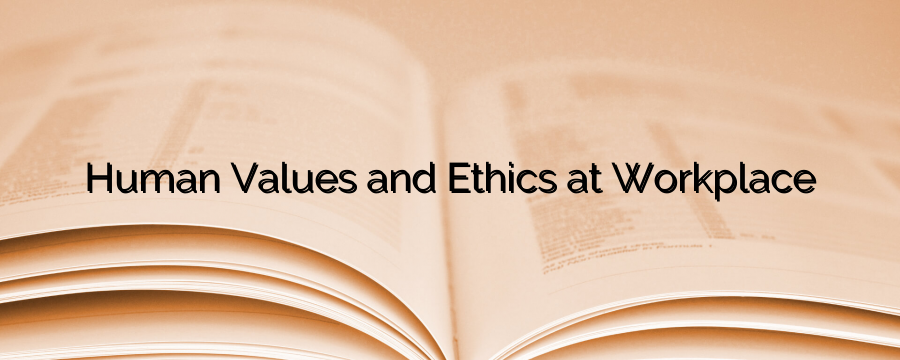Many organizations create specific ethical codes that guide their operations and how their processes impact stakeholders overall. These ethics may help organizations maintain specific standards of accountability, responsibility, professionalism and more as they navigate challenges and different day-to-day circumstances. By maintaining these guidelines in their work, organizations often experience a variety of significant benefits that can improve the lives of employees, customers, leaders and the general public. In this article, we outline what ethics in the workplace are, why they’re important to establish and what specific benefits organizations and stakeholders may enjoy from initiating an ethical code of conduct.
Workplace ethics are an incredibly important part of forming a successful organization with satisfied and loyal team members. High ethical standards can help stakeholders, like employees, investors, customers and other individuals involved with workplace operations feel that the organization is safeguarding their interests. By purposefully building ethical guidelines in their structure, organizations can keep their employees’ best interests in mind while maintaining a positive influence on those they impact through their processes. In turn, employees and other stakeholders will typically follow suit and maintain the organization’s best interests through acting ethically in their day-to-day duties. For example, if an employee is treated fairly and understands an organization’s commitment to accountability and environmental sustainability, they are typically less likely to commit environmentally harmful behavior that may contribute negatively to an organization’s public image. With this, workplace ethics help establish a reciprocal relationship that benefits organizations at large and the individuals influenced by organizational operations. This type of initiative may help organizations and employees alike enjoy particular advancements, like heightened productivity and increased employee satisfaction. When employees understand and perceive their organization’s commitment to high ethical standards, they may become more devoted in their roles and express pride in being part of such an organization. This type of transformation can be key in fostering organizational effectiveness. This mode of conduct is often referred to as organizational citizenship—an employee behavior phenomenon where team members voluntarily pledge themselves to acting positively, constructively and with growth in mind.
There are various benefits to using ethics in the workplace. Leaders, stakeholders and the general public alike can experience significant improvements when organizations hold themselves to high ethical standards. Here are a few of the primary benefits that result from employing ethics in the workplace: When organizations express their commitment to maintaining high ethical standards, they usually treat employees better and encourage staff to act laterally under the same premises. These ethical standards help establish a certain expectation for how organizational operations affect stakeholders’ wellbeing and personal interests. When organizations and stakeholders follow through in upholding ethical standards, they can create a workplace environment where individuals feel respected, heard and satisfied in their roles. With this higher rate of satisfaction, organizations can often reduce staff turnover and more easily attract new, talented candidates to work for them.
As stated above, when organizations act responsibly and ethically, leaders and employers typically follow suit. This can help significantly improve workplace culture overall. For instance, if an organization expresses their ethical commitment to diversity, inclusion and equality, stakeholders may feel responsible for upholding the same ethical standard. They may begin to hold organizational leaders accountable for ethically discrepant actions or start to examine their own behaviors more closely. This type of interaction can help organizations strengthen their initiatives overall and create a robust ethical culture for their workforce where stakeholders feel safe, protected and engaged. Often, the ethical standards that organizations set out for themselves correspond directly with legal guidelines. For example, a manufacturing company that expresses a strong commitment to eco-friendly practices sustainability may also be subject to complying with legal guidelines for sustainable waste removal procedures to avoid environmental pollution. Therefore, when organizations establish strong ethical codes of conduct, they often fall in line with the legal regulations set out for them by official governing bodies and receive the dual benefit of complying with their legal obligations.
When organizations set out clear ethical standards for their workplace, they can typically enjoy an improved public image. In recent years, consumers and society more generally have become increasingly concerned with how organizations treat their employees and act accountably toward the public. For instance, as consumers have become more interested in buying eco-friendly products that guarantee less harm for the natural environment, they have started to examine the ways companies manufacture and market products. This movement has led to the creation of a new consumer market for green products and services in which sustainable companies are viewed more favorably. Therefore, acting ethically can significantly improve an organization’s public image and avoid potential criticisms that would arise through unethical behavior.
If an organization is client-facing, instilling specific ethical workplace standards can help encourage increased customer engagement and loyalty. Often, customers will be more willing to engage with explicitly ethical companies than those with fewer ethical initiatives. As mentioned above, when companies serve their employees and stakeholders with accountability and responsibility, they can garner a certain level of respect in their public reputation. With this, customers may feel more comfortable promoting an organization or spending their money with such companies. Over time, as an organization maintains a robust system of workplace ethics, their reputation may solidify. This can result in heightened customer loyalty—when customers and clients trust an organization, they will return to the organization repeatedly and engage on a deeper level.
When organizations establish ethical codes of conduct in the workplace, they foster a culture designed to uphold such standards. These guidelines can help organizational leaders make streamlined decisions and solve problems efficiently when challenges arise. When leaders have specific ethical expectations set out for them, they can use these expectations to direct their choices and manage conflicts with simplicity. Such streamlined decision-making processes can lead to a high level of organizational consistency in the long term.
(Writer can be reached at:[email protected])
Human Values and Ethics at Workplace
263



